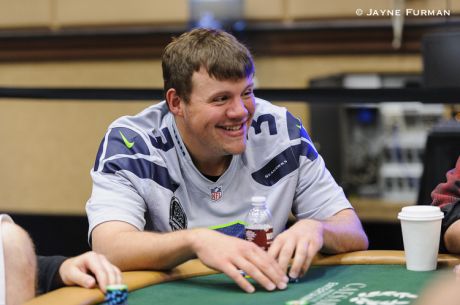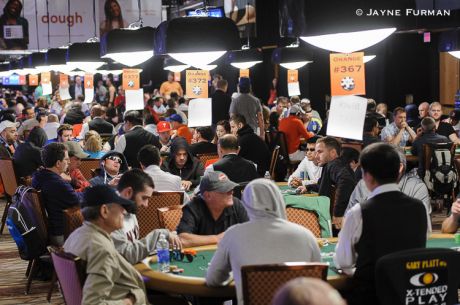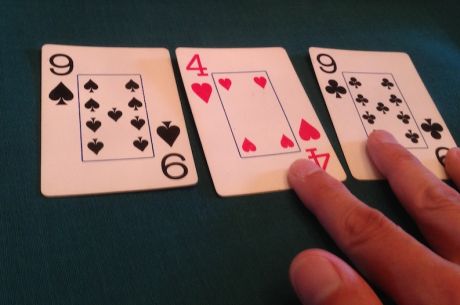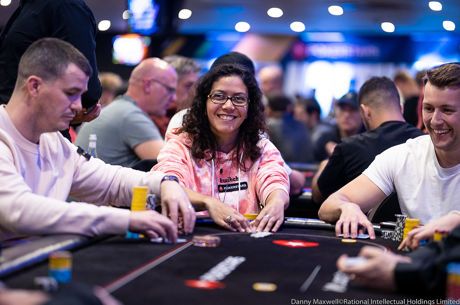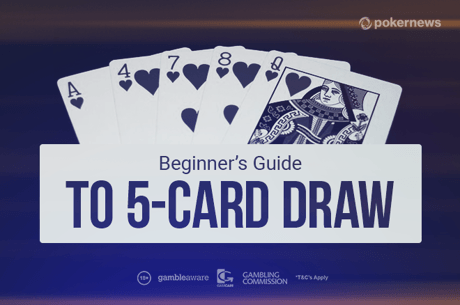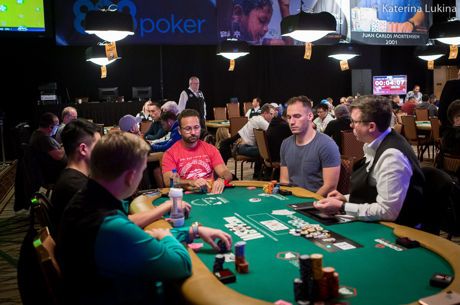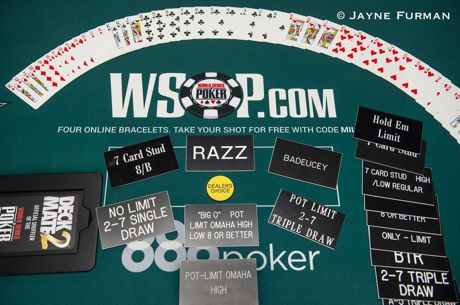George Danzer Discusses Betting and Bluffing in Badugi

Badugi is a game that doesn��t get the love it deserves. While its big brother, deuce-to-seven triple draw, is a part of the popular 8-game rotation, Badugi doesn��t seem to be invited to poker parties quite as often.
It should be, though. Badugi is both fun and challenging, and for those who give it a try it often becomes a favorite poker variant.
The game of Badugi is in fact very simple, even simpler than 2-7 triple draw. The betting is fixed-limit, although occasionally in some crazy live mixes you��ll see pot-limit Badugi pop up once in a while. Like 2-7 there are three draws, with four betting rounds altogether.
As Ken Lo spelled out in his recent article ��Thinking Outside the Hold��em Box: Badugi,�� the object of the game to make the lowest four-card hand without any cards being duplicated in either suit or rank. In other words, the nuts in Badugi would be a hand like A?2?3?4? �� i.e., the lowest four ranking cards with all different suits. (See Ken��s article for more explanation of how to play and some beginner strategy.)
Badugi has been part of a couple of different events at this year��s World Series of Poker already, and will be in the mix again this Friday as one of the variants players can select in Event #67: $10,000 Dealer��s Choice Championship.
In anticipation of that event, we sat down with Team PokerStars Pro George Danzer to discuss the game further and learn some more Badugi strategy from the 2014 World Series of Poker Player of the Year.
PokerNews: First off, do you play Badugi much online?
George Danzer: I don��t play it a lot, I��ve played a little bit of $400/$800, but it��s not part of a mixed game rotation so you don��t get a lot of chances to play [online]. On PokerStars there is, however, some smaller stakes action usually, where you can learn and practice the game.
PokerNews: Let��s begin with starting hands �� what kinds of hands should we be playing in Badugi?
If you��re in early position, you��re going to need three low cards, five or lower, as a starting hand. You don��t want to be drawing to a nine, so something like 9x6x5x is not a good starting hand in early position. With a hand like that, your Badugi is not going to be strong enough, so I wouldn��t raise those early.
A pat hand is good to raise with, so [any hand with] four different suits, which is a Badugi. In full ring I wouldn��t raise a really bad Badugi, like a king, but in six-max you can do that.
From the button and cutoff, and from the blinds, you��re going to be a little looser, so play a hand that has two cards five or lower. A one-card draw to a six or a seven is also fine from those positions.
That gives us a good idea about what hands to start with and whether or not to raise before the first draw. What about three-betting pre-draw?
You choose to three-bet hands that are a little better than what you would just raise with from the position you are in. The difference between calling a hand and three-betting a hand is usually not that big.
When you have a hand that beats your opponent��s range, you��re going to want to three-bet, but if it��s very close then it��s also fine just to call. If you, let��s say, have three cards lower than a six from the small blind and someone in early position raises at a full ring table, you might just want to call because their range is supposed to be fairly tight. You mostly just want to have a better hand than what you would open-raise with to three-bet with.
Both Badugi and 2-7 triple draw have three draws. Would you say these games play similarly?
The biggest difference is that in Badugi you don��t get a lot of good showdown hands. In ��Deuce�� it happens frequently that both players are drawing to a seven- or eight-low, and will end up with a nine, eight, or seven... that��s the range you need to think in. Because of that there are a lot of showdown hands [in 2-7].
Meanwhile in Badugi you don��t make a Badugi [i.e., a four-card hand] that often. Especially not a good Badugi, so therefore the game plays a little slower and it��s not going to showdown that often because the player that looks stronger often wins the pot, even before the last draw. This is because when you are pat and your opponent draws one card, [there aren��t] as many cards to hit. It��s much more difficult to make a hand in Badugi, and therefore there are much fewer showdowns.
Let��s say you call a raise from the button with Ax2x, the strongest two-card hand, and you end up heads-up against the raiser who draws just one card. How would you proceed?
I think it��s not that hard, because your opponent is going to bet for sure and if you don��t improve you can just call one bet. If you do improve and make something like an Ax2x3x or an Ax2x4x, you can easily raise him if he��s still drawing one.
In Badugi it��s actually tougher to play a rough one-card hand than a good two-card hand, because if you don��t improve you can just call one cheap bet, and if you don��t improve after that you can just fold.

How do you approach bluffing in Badugi? What are good spots to bluff?
It��s very easy... if you have a bad hand that you think has no showdown value at all, you pat it and bet it twice in the hope that your opponent folds. They do in a fair amount of hands fold, so it��s a valid strategy, and you should definitely mix it into your game.
You mentioned there are fewer showdowns in Badugi compared to 2-7 �� does that mean you need to bluff more often because that will work more often?
It��s not that you have to bluff more, but you can bluff more often, because it works more often. The snows in 2-7 don��t work nearly as often as they do in Badugi, so it��s not a bad play to snow and bluff.
What��s an average bluff-catching hand if your opponent is being aggressive?
You can use good three-card hand for that. You can call down with an Ax4x5x or better because if an opponent, for instance, turns a one-card eight into a bluff you will have the best hand. With a three-card five or six you can bluff-catch when your opponent is pat.
In Badugi, what is an average hand that wins at showdown?
A three-card five or six usually wins, or perhaps a jack or queen Badugi. In a multi-way pot at a full ring table a jack Badugi is probably the average winning hand, but when it��s six-max without a lot of showdowns, and heads-up action without a lot of raises, it��s mostly three-card hands that win.
Thanks to George Danzer for providing us some more tips about Badugi and hopefully further encouragement to those who haven��t tried it to give the game a go.
Want to stay atop all the latest in the poker world? If so, make sure to get PokerNews updates on your social media outlets. Follow us on Twitter and find us on both Facebook and Google+!

